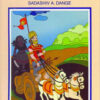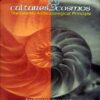MAN IN INDIAN TRADITION (Vidyapati’s Discourse on Purusa)
₹495.00 Original price was: ₹495.00.₹406.00Current price is: ₹406.00.
25 in stock
The book deals with the image of man that was posited in the medieval period when north Indian society was beset with crisis due to the internal conflict of sectarian ideologies as well as the onslaught of the Islamic politico-religious power. This state of sociocultural and political situation was perceived by Vidyapati, a great poet and statesman of Mithila (north-eastern part of Bihar) in the late fourteenth and early fifteenth century, as that of crisis of man. He was probably the first intellectual of north India who recognized the significance of such sociopolitical and religious issues as what is man?, what is manliness?, what is dharma?, etc., in a situation of multi-religious social and political order. There is no space for jati/varna/kula in the structure of man presented by him. Even in the sphere of religion, man is supposed to enjoy autonomy as, according to him, dharma relates to his private domain and to the universal moral precepts of ancient Indian tradition. Purusa Pariksa eloquently presents the reflections on the crisis of his society in which the followers of Vedic or Sanatana dharma had begun to identify themselves as Hindu. It was at this juncture of Indian tradition that Vidyapati introduced his idea of man or individual having courage, sense of discrimination (viveka), boldness of will, wit and learning (vidya). The book conveys his sociopolitical perspective that still appears to be relevant to the issues of national regeneration and development.
| Author's Name | |
|---|---|
| Binding | |
| Release Year | |
| Language | |
| Publisher |
Related products
Anthropology
Anthropology
MULTIPLE APPROACHES TO THE STUDY OF INDIA’S EARLY PAST: Essays in Theoretical Archaeology
Anthropology
Anthropology
Anthropology











